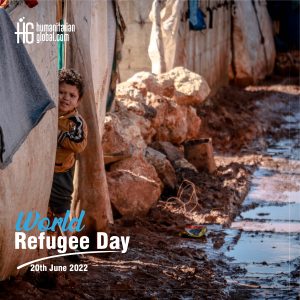This year, more than 60,000 Burundian refugees have returned home from across the region. This comes after tensions have eased in the country, although there is an urgent need for more aid to help them pick up their lives and start over. Safia Nduwimana, a 39-year-old Burundian widow who fled violence in the country two years ago says she has now spent three weeks home since she returned, and cannot decide whether she is joyful or anxious. She came back home for the sake of her nine children who had been homesick and absent from school due to Covid-19, and now she must find means to support them. Safia, who was expectant at the time she fled political violence in Burundi, reached Nakivale Refugee Settlement in Uganda, where she got medical help and was able to safely deliver her child.
Since the beginning of the year, about 2,300 Burundians who had sought refuge in Uganda have approached UNHCR, requesting assistance to get back home amid improving security. Safia was among the first 265 Burundians who voluntarily chose to return home at the start of this month. So far this year, more than 1,250 Burundian refugees in Uganda have returned to their country. The return is supported by UNHCR in Tanzania, Uganda, and Burundi, in collaboration with their governments and several humanitarian agencies. According to the UNHCR flagship reports, Uganda was among the top five countries in the world that hosted the largest number of refugees in 2020. As of September this year, UNHCR estimated more than 1.5 million refugees and asylum seekers in Uganda, with 3% being from Burundi.
Joel Boutroue, UNHCR’s Representative in Uganda stated that while the agency is not promoting the return of refugees to Burundi, they are happy to assist refugees to go back home, since their role is to ensure that the returns are free, voluntary, and informed and that the return process is safe and dignified. Boutroue added that those refugees who choose to stay in Uganda will continue getting international protection, assistance, and services provided by the Ugandan government, UNHCR, and partners. However, most returnees are unaware of what they will face back home since many sold their properties before they fled, while others return only to find them uninhabitable or occupied. By August 2021, UNHCR estimated that 37 percent of returnees could not access their houses when they first returned.
On reaching Burundi, Safia and her family got help finding a house from a former neighbor who had returned previously, since Safia had already sold her home and farm to cover medical expenses before she fled. She plans to immediately get her children back in school and seek work so as to provide them with enough food, seeing as the family had had a difficult time with the recent food rations cuts for refugees in Uganda. However, she remains hopeful that the assistance she has gotten as part of a modest return package will aid in her starting over. With the support she received, she plans to buy a small piece of land, after which she will use the rest to start a small business.
According to Burundi’s national plan to reintegrate refugees, UNHCR and UNDP have offered to help the Government of Burundi build three integrated rural villages in the provinces receiving the most returnees. These villages will help the refugee returnees, internally displaced people, and other vulnerable people to better reintegrate. Abdul Karim Ghoul, UNHCR Representative in Burundi stated that they are doing their best to help returnees, but it requires huge support. This kind of support will enable people to access basic services such as health, education, and more opportunities to become self-reliant, as it also enhances peaceful coexistence among the communities. He stressed the need for more support from development agencies and donors, referring to the Burundi 2021 Joint Refugee Return and Reintegration Plan (JRRRP), which commenced last February, and is currently only 10% funded. UNHCR Burundi is doing its best to assist returnees to reintegrate better into their community, but this needs huge support and contributions.
Since 2017 when the voluntary repatriation exercise began, more than 180,000 Burundians have returned home from Uganda, Tanzania, Rwanda, Kenya, and the Democratic Republic of Congo (DRC). Almost 270,000 Burundian refugees are still in exile and are generously hosted by Uganda, Tanzania, Rwanda, Kenya, DRC, Malawi, Mozambique, Zambia, and South Africa. To stay in the know on current news, subscribe to our newsletter.







